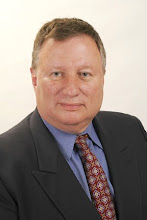Last time we met, I wrote about the art and craft of follow-up: things to keep in mind after a year-end appeal, following up with donors who "lapsed:" who did not give as yet to the fall-winter campaign.
Today, lets consider how we thank our donors. What's good protocol to follow to express our appreciation for financial support of our nonprofit organization's mission?
All donors should be thanked. I recommend that you use a post card for donors who contributed modest amounts via mail. If your budget allows, have an attractive card designed with some color and original art work that will get your donor's attention.
Donors in the $50+ or $100+ range should get a hand-written note. I recommend that the CEO sign these notes, which can be -pre-addressed if there are lots; hand-written is definitely preferred. Most folks, especially those in the baby-boomer cohort or older, appreciate the thought, the personal nature of such a note. Good thing to do.
Those who gave on line might receive an e-mail thank-you note. If you can, have something nicely designed so it's attention getting. Also, it should be sent from the CEO or a board leader, and not in a group mailing, but individual. You can do this in an economical (time) way by having all recipients appear in the "bcc" field.
Larger gifts ($100+, $250+, $1,000+ depending on how you define it at your organization) should receive a written note and a call. This can be a good way to engage your board of directors in the fundraising process. Some may be reluctant to ask. I hope they would not be reluctant to thank. A telephone thank-you at work during the day, at home in the evening can be very much appreciated. I hope you keep track in your database of the preference of your donors as to how they prefer to hear from you. Please do this in a manner consistent with your donor's wishes. This can be part of your relationship-building plan: a way to learn something about your donor. Whoever thanks the donor, should listen for cues: is someone sick at home? Are they indicating difficult financial times? Is the donor telling you something about why he or she loves and supports your mission? Are they leaving on vacation? Have a child coming home for college break? Listen for this information. It's not helpful to pry. It will be very helpful to you when you're working on a major gift campaign to know things about your donors should they volunteer it.
And don't be surprised if you're invited over for a visit. Friendliness invites friendliness. Your tone on the phone, your interest if personal information is offered are generally appreciated, particularly by older donors.
Do you have special techniques you use in thanking your donors? Please tell us. We all appreciate good ideas, things that can become best practice.
If I can be of service in planning, organizing your next fundraising effort, please let me know.
My company is It's The Results, LLC, based in Lynnfield, MA.
You can reach me via e-mail at s..99smith@gmail.com. Or by phone: 781-334-4915.
And I welcome new folks to follow on Twitter: @STEVENETWORK.
Facebook can be useful, cluttered with what appear to be stickers (are we back in elementary school?), but I haven't given up on it. How about you?
Steven P Smith, Principal, It's The Results, LLC
Subscribe to:
Post Comments (Atom)

We are small enough that we generally can tell a donor approximately what we spent their money on.
ReplyDeleteSince most of our donors are ex-volunteers or ex-americorps, emthasizing the particular way their donnation helped our work or made our working condiations better seems to make a difference.